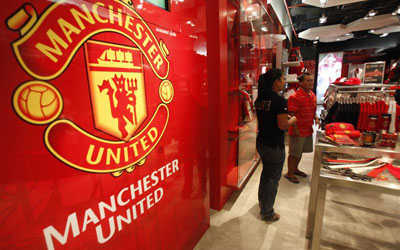Manchester United Reveal Revenue Increase Despite Disappointing Season
May 15, 2014
Despite a lack of on field success this season, Manchester United have posted record third quarter revenues of £115.m, up 26% in their latest financial accounts released today.
The Premier League giants failed to qualify for the Champions League finishing seventh their lowest position in the Premier League era but have continued to soar off the field.
The financial results for the 2014 fiscal third quarter and nine months ending 31 March 2014 show United’s commercial revenues totaled £42.8m for the period with sponsorship revenue increasing 43.5%. Adjusted EBITDA of £40m was up 60% and also a record for the quarter whilst overall debt fell by £16m to £351.7m.
United, who are expected to announce the appointment of Dutch coach Louis van Gaal as Moyes’ replacement saw broadcasting revenues increase 64.1% for the quarter and 35.7% for the year to date, due to the new Premier League domestic and international TV rights agreements as well as two additional Premier League home games and five more games broadcast live during the quarter compared to the same period last year.
Woodward Pleased with ‘healthy financial position’
United’s Executive Vice Chairman, Ed Woodward, commented about the latest results: “We once again generated record revenues and EBITDA as all of our businesses delivered impressive year over year growth.
“This puts us in a healthy financial position to continue to invest in the squad. Everyone at the Club is working hard to ensure the team is back challenging for the title and trophies next season.
Matchday revenue for the third quarter was £37.1m, an increase of £3.1m, or 9.1%, over the prior year quarter, primarily due to playing two additional home Premier League games and one additional home Capital One Cup game, partly offset by playing three fewer home FA Cup games.
Total operating expenses were £91.5m, an increase of £12.5m, or 15.8%, over the prior year quarter. Staff costs totaled £53.4m, an increase of £8.5m, or 18.9%, primarily due to the impact of player acquisitions such as Juan Mata who signed from Chelsea in January for £37.5m and the renegotiation of player contracts.
Other operating expenses for the third quarter were £22.1m, an increase of £0.3m, or 1.4% due to the increases in fixed costs from foreign exchange losses and higher sponsorship servicing being largely offset by lower variable costs from three fewer FA Cup matches.
{jcomments on}


